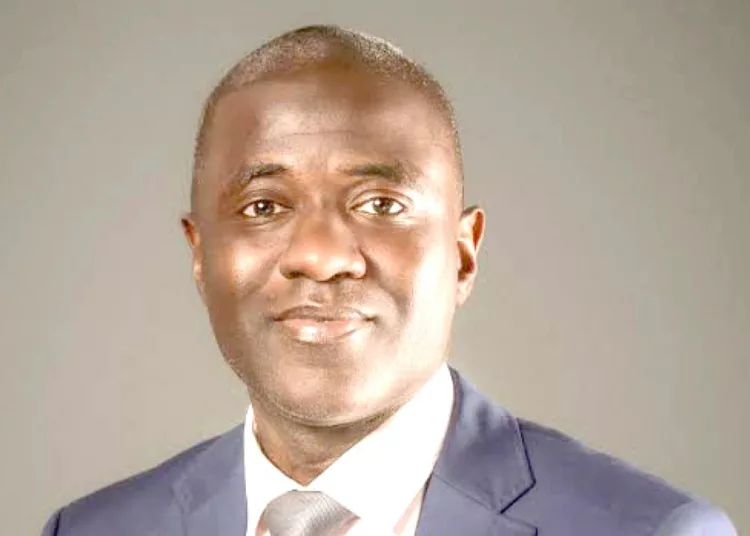The Nigerian Communications Commission (NCC), recently invited critical stakeholders in the sector to a 2-day public inquiry into three regulatory instruments, also known as subsidiary regulations.
The reason for this is not far-fetched, as the current state of ICT as an industry in Nigeria can be described as rapidly growing and dynamic.
Undoubtedly, Nigeria‘s ICT sector has been instrumental in spearheading technical innovation in the nation and fostering the growth of several industries, including banking, education, agriculture, and health.
The ICT sector has facilitated the development of novel services and solutions that address the difficulties Nigeria, as a country faces in promoting economic progress.
The growth of startups and entrepreneurship is a significant factor in the ICT industry‘s contribution to technological innovation. For instance, Nigeria has witnessed a boom in tech startups, with about 180 startups receiving $4.4 billion, representing 30 percent of the $15 billion total investments between 2019 and 2023.
According to Africa-The Big Deal report, Nigeria led the Big Four in the African startup ecosystem, comprising Kenya, raising $2.9 billion, and South Africa, raising $2.4 billion. Egypt raised $2.3 billion, in the period under review. The four countries attracted 84 percent of all the start-up funding in Africa since 2019, the report by The Big Deal added.
These entrepreneurs are using ICT to create cutting-edge goods and services, disrupting traditional industries, and finding solutions to urgent social issues.
The ICT industry in Nigeria has also promoted better connectivity and accessibility to technology. Millions of Nigerians are now online and linked to the digital world thanks to the spread of mobile devices and the rise in internet usage. Thanks to this connectivity, there are now more options for e-learning, online enterprises, innovation, and access to basic services.
Nigeria‘s ICT sector is booming and has become a major force behind technical innovation. Its impact on empowering entrepreneurs and startups and revolutionizing several industries cannot be over-emphasized. Nigeria‘s ICT sector can spur additional innovation and lead the nation toward a digital future with sustained government support, investments, and an emphasis on resolving issues.
To sustain these gains, the commission has from time to time, examined its policies/regulations, to see if they conform to world best practices.
The recently held two-day public inquiry brought together experts, stakeholders, and engaged citizens, all of whom brought valuable insights and perspectives that will help shape the future of the ICT industry.
Their focus was on three vital regulatory instruments in the communications sector, which are the Telecommunications Networks Interconnect Regulations; the Guidelines on Procedure for Granting Approval to Disconnect Telecommunications Operators, and the Guidelines for Dispute Resolution.
According to the executive vice chairman/CEO of the NCC, Dr. Aminu Maida, their participation, valuable contributions, and feedback are vital in shaping a path forward that benefits all Nigerians.
Maida reiterated that NCC, as the independent regulatory authority for the communications industry in Nigeria, has always been committed to promoting an efficient, accessible, and competitive telecom industry.
“The public inquiry we are conducting today is a testament to the Commission’s dedication to transparency and inclusivity ensuring that the voices of all stakeholders are heard and considered.
“These regulatory instruments play a vital role in shaping our communications landscape and it is essential that the commission visits and refines them to address emerging challenges, trends, and opportunities. The instruments that we considered during the course of this public inquiry are vital in ensuring the communications sector meets the demand of the ever-evolving digital age,” he posited.
According to the Ag. Head of Legal and Regulatory Services Department of NCC, Mrs. Chizua Whyte, “This Public Inquiry, is a vital part of the Nigerian Communications Commission‘s (NCC), mandate to create a dynamic communications sector. The Nigerian Communications Act 2003 empowers us to develop and amend regulatory instruments, and your input today is crucial in refining these regulations to address the sector‘s evolving challenges.”
Interconnect regulations
A competitive communication market needs interconnection to function properly, hence the reason why the Nigerian Communications Act 2003 acknowledges this, requiring network facilities and network service providers to offer interconnection to other licensees upon request at any location that is technically viable.
The development of „modern, universal, efficient, reliable, affordable and easily accessible communications services in Nigeria“ is presumably dependent on interconnection, which also serves as the foundation for the supply of a wide range of services to customers.
On the other hand, a lot of nations consider interconnection-related problems to be the most significant obstacle to the creation of a competitive broadband market.
This exemplifies the importance of the role that the NCC plays in interconnection, hence the reason why the first Regulatory instrument on the NCC agenda at the meeting was the Telecommunications Networks Interconnect Regulations.
Maida explained that interconnection plays a vital role in enabling seamless communication between two different networks and facilitating the growth of the communications industry in Nigeria.
This review is crucial to keep pace with technological advancement, foster competition, protect consumer interest, align with international standards, and improve regulatory efficiency in the industry, the NCC boss averred.
The Ag. Head of the Legal and Regulatory Services Department of NCC, Whyte, added that interconnection fosters service delivery and market cohesion, ensuring operators have fair and non-discriminatory access; the proposed amendments aim to enhance compliance, provide a comprehensive interconnection framework, and improve monitoring systems.
Guidelines to disconnect telecom operators:
As the industry continues to evolve is the main instances where disconnection of operators becomes necessary, Maida said, adding that the second instrument (Guidelines on Procedure for Granting Approval to Disconnect Telecommunications Operators), lays out the procedural framework through which such approvals are granted, ensuring that they are carried out in a transparent and accountable manner.
“This framework ensures fairness, transparency, and certainty in disconnection procedures, protecting operators from unjustified disconnections and ensuring contractual obligations are honored. This review will bolster investor confidence and promote healthy competition,” Whyte assured.
Guidelines for Dispute Resolution:
Disputes are an inevitable part of any industry, hence the reason the commission will be reviewing the guidelines for Dispute Resolution.
“It is indisputable to have disputes in any transaction and having a robust framework to resolve them is crucial. These guidelines aim to provide a clear and transparent mechanism for resolving conflicts within the communications sector promoting timely resolutions and ensuring that stakeholders are treated fairly.
“As disputes arise, we must evaluate and improve these guidelines to ensure they remain effective in resolving conflicts and promoting a stable telecommunications ecosystem,” Maida asserted.
In line with section 73 of the Telecommunications Act, effective dispute resolution is essential for resolving issues efficiently and fairly.
“The updated guidelines aim to streamline the process, save time, reduce costs, and minimize service disruptions, particularly for small claims. This will enhance stakeholder confidence in the resolution process,” Whyte affirmed.
By refining these guidelines, Maida assured of an environment that inspires innovation, encourages fair competition, and ultimately serves the best interests of all stakeholders.
“As the communications industry evolves with emerging technologies, NCC’s regulatory instruments must adapt swiftly. The Commission‘s collaborative efforts with stakeholders have driven significant advancements and will continue to propel the sector forward.
“This Public Inquiry underscores our commitment to regulatory excellence and to building a robust communications sector that supports the Nigerian economy. We value your contributions and look forward to shaping a strong, dynamic industry together,” Whyte promised.




